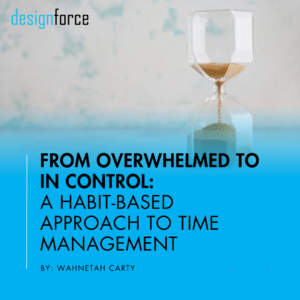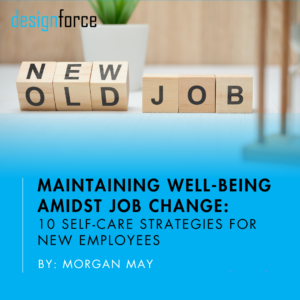First off, congratulations; you have successfully made it through the interview process and are now looking forward to your first day at a new job! As excited as you might be, there are some items to consider to make your first few weeks on the job as productive and successful as possible. The majority of articles available on the internet are geared towards the employer, and how to create a successful onboarding program. While the majority of the responsibility for a successful program is placed on the organization’s shoulders, I want to discuss a few ways a new employee can ensure they get the most out of the onboarding process when joining a new company.
Be Prepared and Ready to Learn:
You will be introduced to many different things in the first few weeks in a new position. As you are getting acclimated, regardless of your experience, be ready to learn. Even if you are seasoned in the industry, you will be new to the company’s procedures, culture, and projects. There are going to be aspects of the company or role that you are unfamiliar with. The more proactively you work to understand these differences and learn how the organization does things, the sooner you will become an effective member of the team. Wait to understand the company’s procedures and how things are done before you understand what can be changed or improved.
The other aspect of this is preparation. Showing up ready for your first day by preparing the night before is the first step toward success. For example, part of the first day is typically spent filling out your new employee paperwork. Research which I9 documents are acceptable the night before and review the company handbook. Taking these steps will help you feel and be ready to kickstart the onboarding process. And, don’t forget a voided check!
Communication and rapport:
You start to communicate and build rapport with managers and coworkers the minute you, physically or remotely, “walk through the door.” You only have one first impression; make it count! The social aspects of a workday are just as important to successful onboarding as the training is; plan to get to know your co-workers away from your desk by joining in on lunch or after work happy-hour (even if you are the introverted type, this will go a long way in your overall happiness over time). Building rapport is essential to building quality relationships. Asking open-ended questions is a simple rapport-building strategy. In a Harvard University study, asking questions and follow-up questions to stimulate in-depth conversation, researchers found that people who asked more questions were perceived as being more likable. Small talk can be difficult and thought, by some, to add little value to a conversation. By asking both initial and follow-up questions, you will learn more about the people working with you, thus lowering the time needed to increase the cohesiveness of the team.
Find a mentor:
Whether one is assigned to you or you have to find your own “onboarding buddy” at work, take full advantage of the knowledge of the people around you. A mentor can act as a guide and provide context on small but important aspects of the role and company culture. For example, writing emails is a staple of most jobs, but each has subtleties on how they are sent and to whom. This mentor can help to provide context on how emails are written, how meetings are structured, and how company information is presented. Mentorship is key to an employee’s success from day one. Furthermore, mentors can give context to things outside of the employee handbook like who industry leaders are, cultural norms, and unspoken rules within the office.
Onboarding is a time for a new employee to learn about their team, and vice versa; it offers the opportunity to create a successful environment for everyone involved. The relationship between the employee and employer is a symbiotic one. Onboarding success shouldn’t be placed on only one or the other’s shoulders, but rather be a joint effort between the two parties to make assimilation as successful as possible.

Related Posts
Let's learn together.
Stay inspired and in the know on all things A|E|C.
Sign up for our monthly newsletter.










